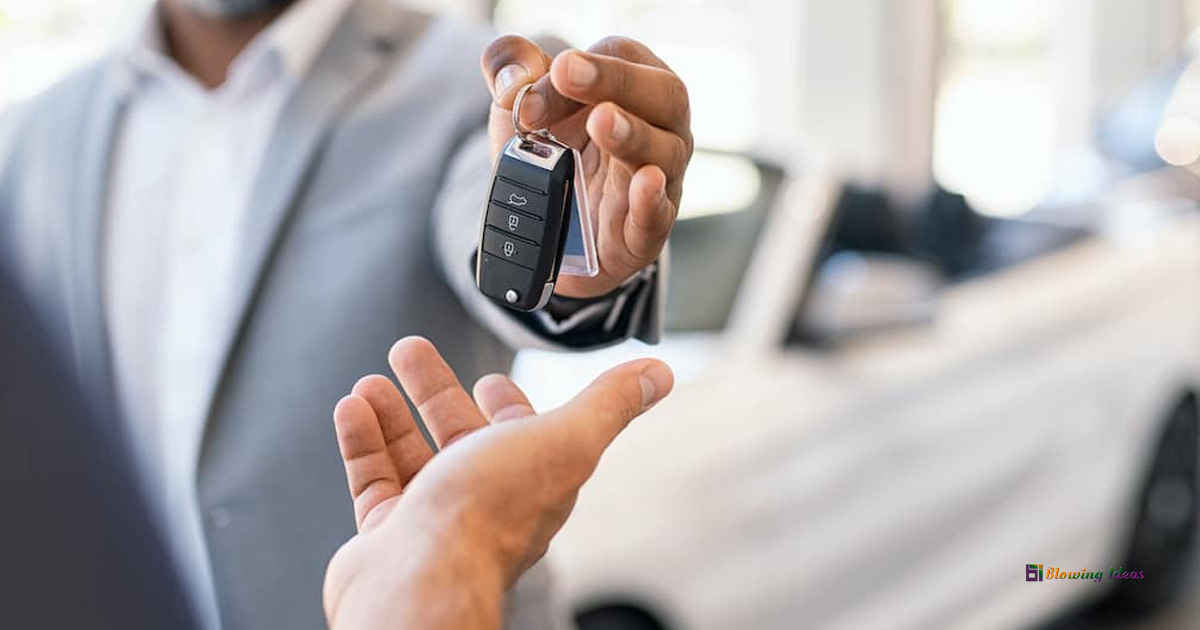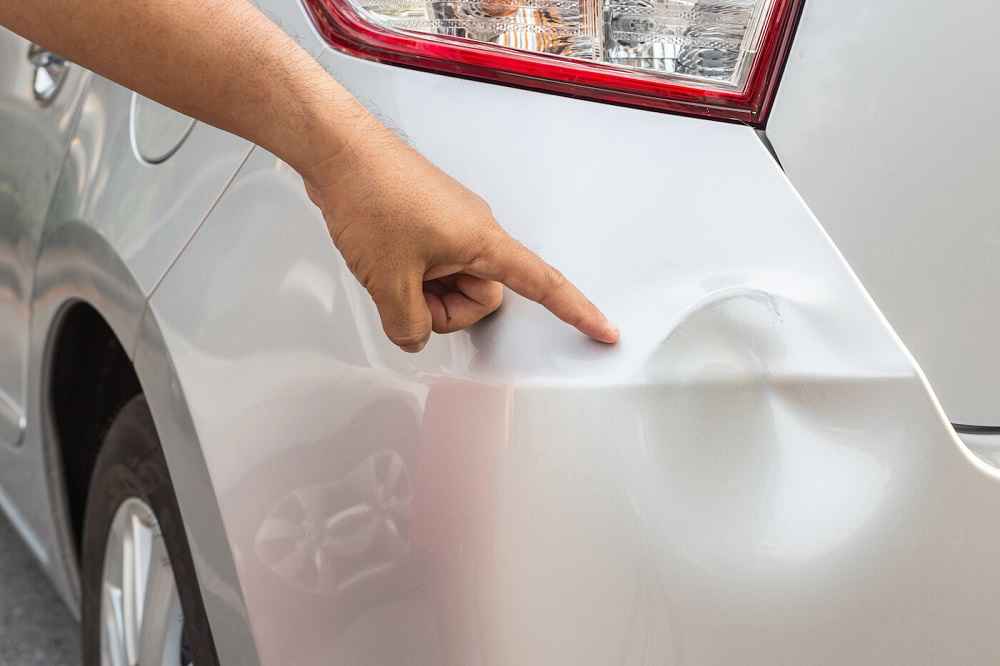While it seems like a wise decision to fix your car before trading it in, you may want to know if fixing the car is really worth the extra effort. If you want to know whether you should fix your car before trading it, this article is for you.

In this article, we will provide an answer to the question, “Should I Fix My Car Before Trading it.” We will also explore the pros and cons of fixing your car before trading it in, the factors to consider, as well as the tips for maximizing the value of a trade-in.
The Pros of Fixing a Car Before Trading It In
Fixing your car before trading it in comes with several benefits. One of the main advantages of fixing your car before trading it in is that fixing can increase the trade-in value of your car.
This is because the repairs will address any issues, such as a worn-out transmission or malfunctioning air conditioning, that may likely reduce the car’s value. Additionally, a fixed car is more likely to pass the dealership’s inspection, which will further increase the value of the car.
Another advantage of fixing your car before trading it in is that it can improve its appeal and increase the chances of selling your car quickly. For instance, a car that looks good and is in a good working condition is more likely to appeal to potential buyers.
This means that fixing your car makes it easier for you to find buyers and faster to close the sale.
Lastly, fixing your car before trading it in can be a cost-saving measure for the buyer. This is because any issues that are not addressed before trading in the car will be addressed by the new owner and this can lead to additional costs down the road.

The Cons of Fixing a Car Before Trading It In
While there are advantages to fixing a car before trading it in, there are also some downsides associated with it. One of the main disadvantages is the high upfront costs associated with fixing the car.
Fixing the car can be a significant financial burden for you, especially if you are trading in the car to buy a new car. Another disadvantage is that the process of fixing a car before trading it in can be time-consuming.
Sometimes, repairs can take several days or even weeks to complete, and this will delay the trade-in process. Additionally, you may have to find alternative means of transportation while your car is being repaired.
Lastly, there is also the risk that the cost of repairs will not be recouped when the car is traded in. This is especially true if the car is an older model or in poor condition, as the value of the car may not be sufficient to cover the cost of repairs.
Factors to Consider When Deciding Whether to Fix a Car Before Trading It In
When deciding whether to fix a car before trading it in, there are several factors that you should consider. One of the most important factors is the age and condition of the car.
If your car is an older model or in poor condition, investing in repairs may not be worth the extra costs and effort. Another important factor to consider is the cost of repairs.
If the cost of repairs is relatively low, it may make sense to fix your car before trading it in. However, if the cost of repairs is on the high side, it may not be worth the investment.
The value of your car is also an important factor to consider. If your car has a high value, it may be worth investing in repairs to increase its value even further.
However, if your car has a low value, fixing the car may not add any significant extra value to the car. Hence, it may not make sense to spend a significant amount of money on repairs.
The reason for trading in your car is also an important factor. If you are trading in your car for a newer model, it may make sense to invest in repairs to increase the value of your car.
However, if you are trading in your car as a down payment for a cheaper car, it may not make sense to spend money on repairs. Another important factor to consider is the market demand for your car model.
If there is high demand for your car model in the market, it may make sense to invest in repairs to increase the car’s value and make it more appealing to potential buyers. However, if there is low demand for similar cars, it may not be worth the investment.
Tips for Maximizing the Value of a Trade-In
Even if you decide not to fix your car before trading it in, there are still steps you can take to maximize the value of your trade-in.
One of the most effective ways to do this is by cleaning and detailing your car. This can make your car look and smell more attractive to potential buyers, which can increase its value.
Another way to maximize the value of a trade-in is by making minor repairs and touch-ups. This can include things like fixing a broken taillight or replacing worn-out floor mats. These small repairs can make a big difference in the overall appearance and value of the car.
Providing a complete service history can also increase the value of a trade-in. This includes maintenance records and receipts for repairs, as well as information about the car’s previous owners. This can demonstrate to potential buyers that the car has been well-maintained and taken care of.
Finally, demonstrating the car’s features and benefits can also increase its value. This can include things like highlighting the car’s fuel efficiency, safety features, or advanced technology.

Conclusion
When trading in a car, one important decision most car owners have to make is whether to fix their car or not before trading it in. While there are advantages associated with fixing your car before trading it in, there are also some downsides to it.
Factors to consider before trading in your car include the age and condition of the car, the cost of repairs, the value of the car, the intended use of the trade-in car, and the market demand for the car model.
Even if you decide not to fix your car before trading it in, you can still take some steps to maximize the value of your trade-in. These steps include cleaning and detailing your car, making minor repairs, providing a complete service history, and demonstrating the car’s features and benefits.
Ultimately, it is important to research the market and consult with professionals before making a decision.
Can I trade in my car even if it has a few problems or needs repairs?
Yes, you can trade in your car even if it has a few problems or needs repairs. However, this can negatively impact the trade-in value of your car.
Also, some dealerships may also require you to fix any issues with your car before they will accept the trade-in.
Should I disclose any issues or repairs that have been done on my car before trading it in?
Yes, it is important to disclose any issues or repairs that have been done on your car before trading it in. This can include things like accidents, previous repairs, and any outstanding recalls.
This will help to ensure that the dealership has an accurate picture of the car’s condition and can adjust the trade-in value accordingly.
How do I determine the value of my car before trading it in?
There are several ways to determine the value of your car before trading it in. One way is to use an online car valuation tool, which can give you an estimate based on your car’s make, model, year, and condition.
Another way is to consult with a professional mechanic or appraiser, who can give you a more accurate estimate based on a detailed inspection of the car.
Can I negotiate the trade-in value of my car?
Yes, you can negotiate the trade-in value of your car. It is important to have a good understanding of the car’s value and to be prepared to negotiate based on that information.
It’s also helpful to do some research on the dealership’s trade-in policies and the market value of similar cars.
Can I trade in my car even if I still owe money on it?
Yes, you can trade in your car even if you still owe money on it. However, it is important to note that the trade-in value of your car may be reduced by the amount you still owe on the car loan.
Additionally, the dealership may require you to pay off the remaining loan balance before they will accept the trade-in.